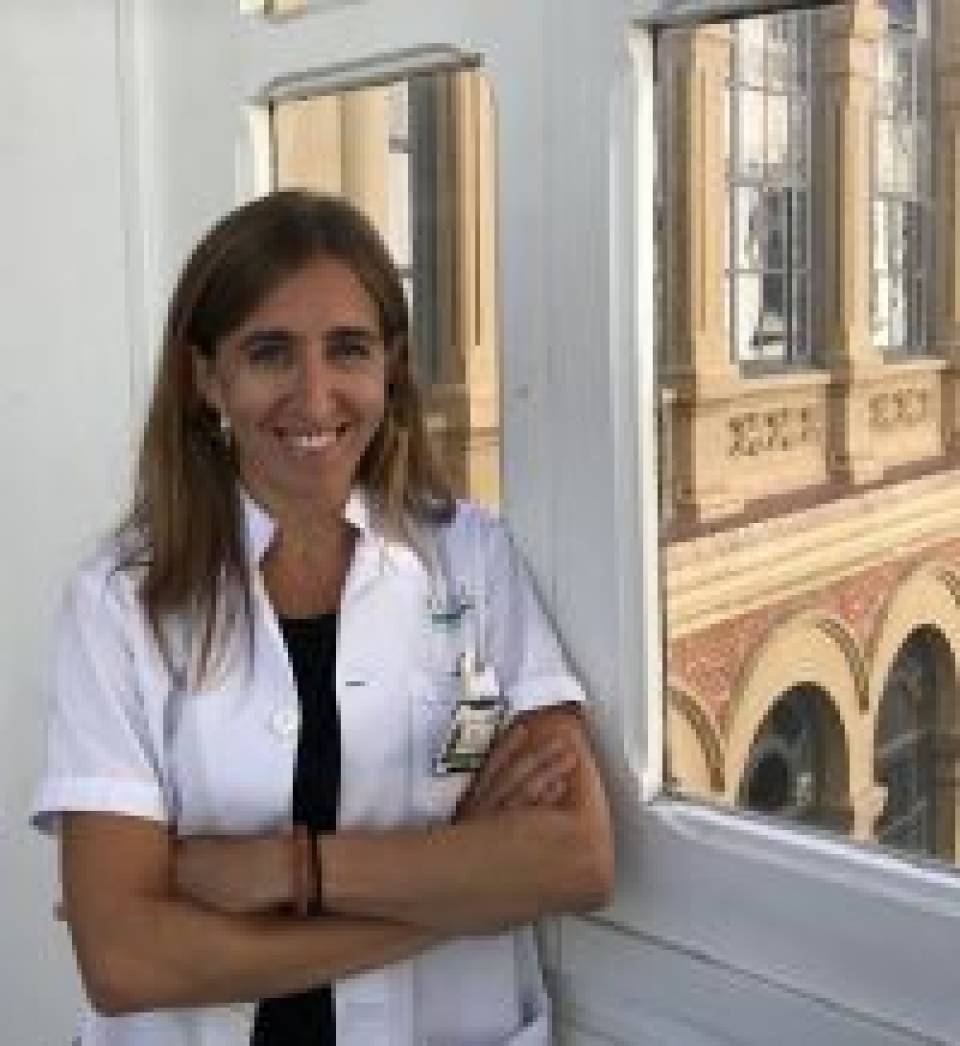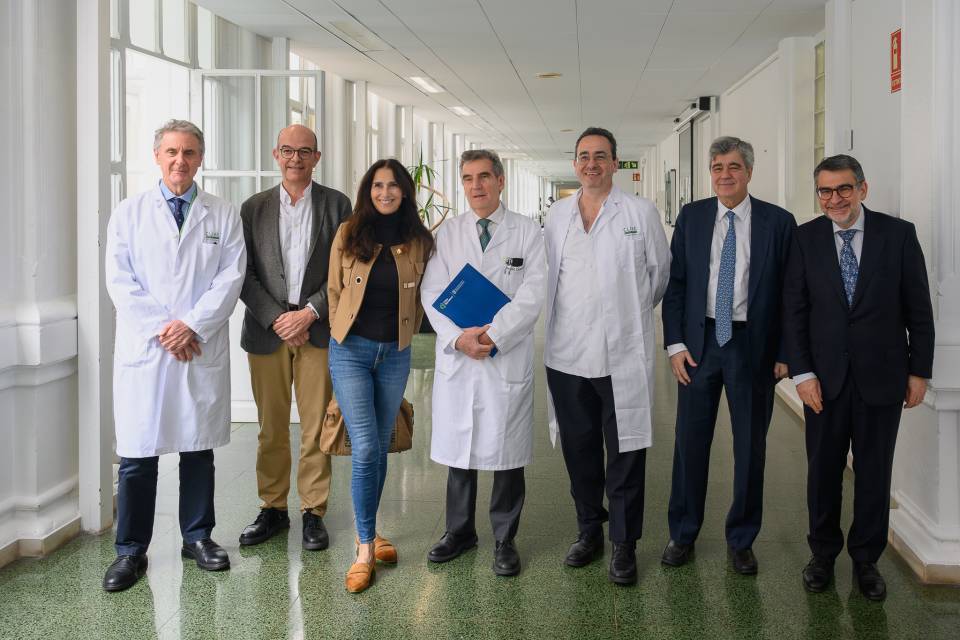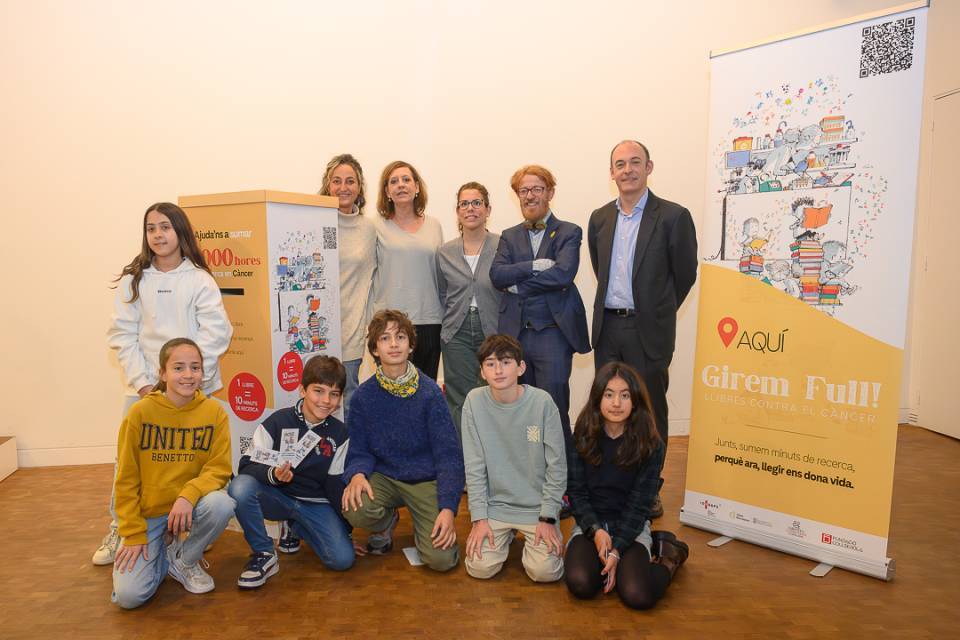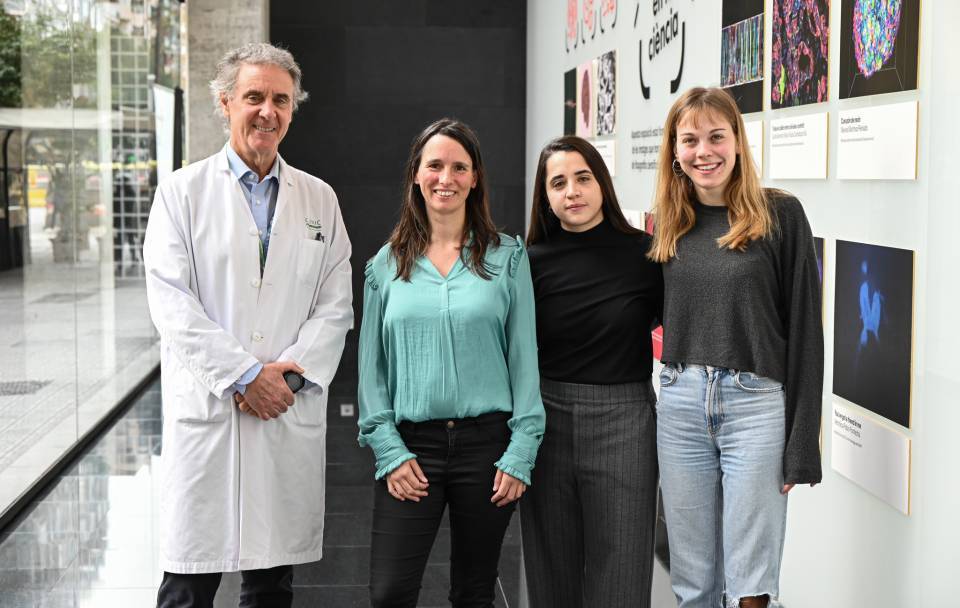- What is cancer immunotherapy?
- Immunotherapy types
- What is CAR-T therapy?
- How is CAR-T therapy done?
- Before and during CAR-T administration
- What happens after I am treated with CAR-T?
- What is TIL therapy?
- How is TIL therapy done?
- Before and during TILs administration
- What happens after I am treated with TILs?
Treatment at Hospital Clínic
Around 100 CAR-T therapy productions have been carried out in the last year and dozens of commercial CAR-T products have also been infused. This entails monitoring a large number of patients.
After taking the different follow-up samples from the patients, they are sent to the Biomedical Diagnostic Centre (CDB) to be distributed to the different services and laboratories; among which are the Immunotherapy Section, the Pathological Anatomy service and the Haematopathology laboratory.
The Hospital Clínic Barcelona is notable for being a pioneering centre for the production of CAR-T therapies in Spain and also in Europe. Among the most significant milestones is the approval of the pioneering clinical trial for the use of ARI-0001, which was the first CAR-T developed entirely in Europe and approved by a regulatory authority. In addition, the Spanish Agency for Medicines and Medical Devices (AEMPS) approved the hospital exemption for this therapy. This means the advanced therapy is allowed at the national level, without yet having a marketing authorisation.
It was granted the PRIME (PRIority MEdicines) designation by the European Medicines Agency (EMA). PRIME is a programme launched by the EMA to support the development of medicines that address a medical need for which there is currently no treatment. The goal is to accelerate evaluation so these medications can reach patients as soon as possible.
Another important milestone is the approval of the clinical trial for the use of ARI-0002h. The first academic multicentre CAR-T therapy clinical trial in Spain.
In addition to these therapies, the first clinical trial against T-cell lymphoblastic leukaemia in the European Union was recently approved, in collaboration with OneChain Immunotherapeutics (a spin-off of the Josep Carreras Foundation against leukaemia). These and many other milestones make the Hospital Clínic Barcelona a reference centre for CAR-T therapy at both a Spanish and European level.
Also, the Hospital Clínic Barcelona currently has the TIL therapy TILS0001 trial approved, and is one of the pioneering centres, at the Spanish and European level, for using this therapy to treat breast cancer. This trial is currently underway with a single patient enrolled and administered without side effects. It is also expected that this type of therapy can be adapted to other types of solid tumours in the future.
Also, TILs were administered within the C-144-01 trial for melanoma patients without selection for reactive TILs.
CAR-T treatments approved at the Hospital Clínic Barcelona
There are different CAR-T therapy pharmaceutical products, both in the academic and industrial fields, that are used for the treatment of different oncohaematological diseases. The use of the following cellular pharmaceutical products is authorised at the Hospital Clínic Barcelona, whether approved or in clinical trials:
| Product |
ARI-0001 |
ARI-0002h | Yescarta® | Kymriah® |
| Indication | CD19+ B-cell acute lymphoblastic leukaemia (ALL) in relapse, refractory to more than 2 lines of treatment or in post-transplant relapse in adults over 25 years of age. | Adult patients with relapsed or refractory multiple myeloma with prior treatment with a proteasome inhibitor, immunomodulator and anti-CD38 antibody. |
1. Adult patients with large B-cell lymphoma refractory to first-line chemo-immunotherapy or relapsed within 12 months of first-line chemo-immunotherapy. 2. Adult patients with relapsed or refractory large B-cell lymphoma after two or more lines of systemic therapy, including diffuse large B-cell lymphoma (DLBCL) not otherwise specified, primary mediastinal large B-cell lymphoma (PMBCL), high grade B-cell lymphoma (HGBL) and DLBCL arising from follicular lymphoma. |
1. Patients up to 25 years of age with refractory B-cell precursor acute lymphoblastic leukaemia (ALL) or in second or subsequent relapse. 2. Adult patients with relapsed or refractory (r/r) large B-cell lymphoma after two or more lines of systemic therapy, including unspecified DLBCL, high-grade B-cell lymphoma and DLBCL derived from follicular lymphoma. Limitations of use: KYMRIAH is not indicated for the treatment of patients with primary central nervous system lymphoma. 3. Adult patients with relapsed or refractory follicular lymphoma (FL) after two or more lines of systemic therapy. This indication is approved under accelerated approval based on response rate and response duration. Continued approval for this indication may depend on verification and description of clinical benefit in confirmatory trials. |
| Commercial | No | No | Yes | Yes |
| Academic | Yes | Yes | No | No |
| Autologous | Yes | Yes | Yes | Yes |
| Side effects |
CRS, Neurotoxicity |
CRS, Neurotoxicity |
CRS, Neurotoxicity |
CRS, Neurotoxicity |
| Overall survival |
68.6% (1 year) |
N/A (clinical trial) |
42.6% (5 years) |
55% (5 years) |
| Product name |
Varnimcabtagene autoleucel |
Cesnicabtagene autoleucel |
Axicabtagen ciloleucel |
Tisagenlecleucel |
Substantiated information by:


Published: 21 September 2023
Updated: 21 September 2023
Subscribe
Receive the latest updates related to this content.
Thank you for subscribing!
If this is the first time you subscribe you will receive a confirmation email, check your inbox


